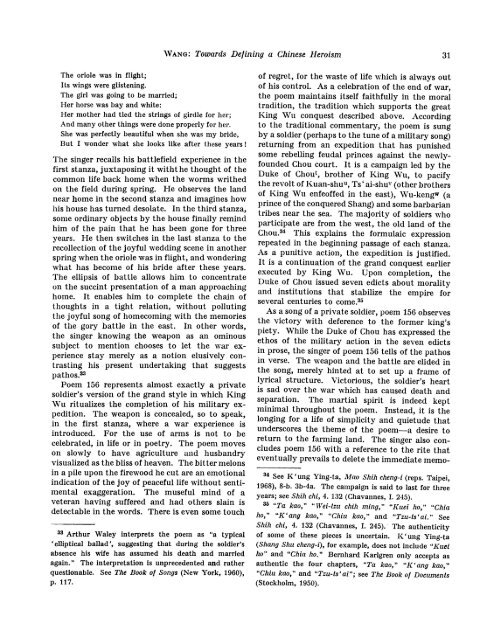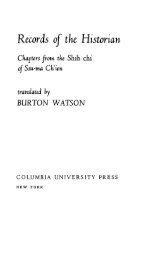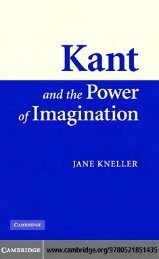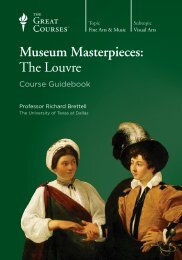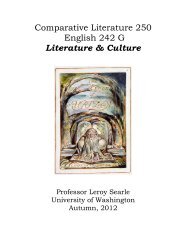Ellipsis of Battle.pdf - University of Washington
Ellipsis of Battle.pdf - University of Washington
Ellipsis of Battle.pdf - University of Washington
You also want an ePaper? Increase the reach of your titles
YUMPU automatically turns print PDFs into web optimized ePapers that Google loves.
The oriole was in flight;<br />
Its wings were glistening.<br />
The girl was going to be married;<br />
Her horse was bay and white:<br />
Her mother had tied the strings <strong>of</strong> girdle for her;<br />
And many other things were done properly for her.<br />
She was perfectly beautiful when she was my bride,<br />
But I wonder what she looks like after these years I<br />
The singer recalls his battlefield experience in the<br />
first stanza, juxtaposing it witht he thought <strong>of</strong> the<br />
common life back home when the worms writhed<br />
on the field during spring. He observes the land<br />
near home in the second stanza and imagines how<br />
his house has turned desolate. In the third stanza,<br />
some ordinary objects by the house finally remind<br />
him <strong>of</strong> the pain that he has been gone for three<br />
years. He then switches in the last stanza to the<br />
recollection <strong>of</strong> the joyful wedding scene in another<br />
spring when the oriole was in flight, and wondering<br />
what has become <strong>of</strong> his bride after these years.<br />
The ellipsis <strong>of</strong> battle allows him to concentrate<br />
on the succint presentation <strong>of</strong> a man approaching<br />
home. It enables him to complete the chain <strong>of</strong><br />
thoughts in a tight relation, without polluting<br />
the joyful song <strong>of</strong> homecoming with the memories<br />
<strong>of</strong> the gory battle in the east. In other words,<br />
the singer knowing the weapon as an ominous<br />
subject to mention chooses to let the war ex-<br />
perience stay merely as a notion elusively con-<br />
trasting his present undertaking that suggests<br />
pathos.33<br />
Poem 156 represents almost exactly a private<br />
soldier's version <strong>of</strong> the grand style in which King<br />
Wu ritualizes the completion <strong>of</strong> his military ex-<br />
pedition. The weapon is concealed, so to speak,<br />
in the first stanza, where a war experience is<br />
introduced. For the use <strong>of</strong> arms is not to be<br />
celebrated, in life or in poetry. The poem moves<br />
on slowly to have agriculture and husbandry<br />
visualized as the bliss <strong>of</strong> heaven. The bitter melons<br />
in a pile upon the firewood he cut are an emotional<br />
indication <strong>of</strong> the joy <strong>of</strong> peaceful life without senti-<br />
mental exaggeration. The museful mind <strong>of</strong> a<br />
veteran having suffered and had others slain is<br />
detectable in the words. There is even some touch<br />
33 Arthur Waley interprets the poem as "a typical<br />
'elliptical ballad', suggesting that during the soldier's<br />
absence his wife has assumed his death and married<br />
again." The interpretation is unprecedented and rather<br />
questionable. See The Book <strong>of</strong> Songs (New York, 1960),<br />
p. 117.<br />
WANG: Towards Defining a Chinese Heroism<br />
31<br />
<strong>of</strong> regret, for the waste <strong>of</strong> life which is always out<br />
<strong>of</strong> his control. As a celebration <strong>of</strong> the end <strong>of</strong> war,<br />
the poem maintains itself faithfully in the moral<br />
tradition, the tradition which supports the great<br />
King Wu conquest described above. According<br />
to the traditional commentary, the poem is sung<br />
by a soldier (perhaps to the tune <strong>of</strong> a military song)<br />
returning from an expedition that has punished<br />
some rebelling feudal princes against the newly-<br />
founded Chou court. It is a campaign led by the<br />
Duke <strong>of</strong> Chout, brother <strong>of</strong> King Wu, to pacify<br />
the revolt <strong>of</strong> Kuan-shuU, Ts' ai-shuv (other brothers<br />
<strong>of</strong> King Wu enfe<strong>of</strong>fed in the east), Wu-kengw (a<br />
prince <strong>of</strong> the conquered Shang) and some barbarian<br />
tribes near the sea. The majority <strong>of</strong> soldiers who<br />
participate are from the west, the old land <strong>of</strong> the<br />
Chou.34 This explains the formulaic expression<br />
repeated in the beginning passage <strong>of</strong> each stanza.<br />
As a punitive action, the expedition is justified.<br />
It is a continuation <strong>of</strong> the grand conquest earlier<br />
executed by King Wu. Upon completion, the<br />
Duke <strong>of</strong> Chou issued seven edicts about morality<br />
and institutions that stabilize the empire for<br />
several centuries to come.35<br />
As a song <strong>of</strong> a private soldier, poem 156 observes<br />
the victory with deference to the former king's<br />
piety. While the Duke <strong>of</strong> Chou has expressed the<br />
ethos <strong>of</strong> the military action in the seven edicts<br />
in prose, the singer <strong>of</strong> poem 156 tells <strong>of</strong> the pathos<br />
in verse. The weapon and the battle are elided in<br />
the song, merely hinted at to set up a frame <strong>of</strong><br />
lyrical structure. Victorious, the soldier's heart<br />
is sad over the war which has caused death and<br />
separation. The martial spirit is indeed kept<br />
minimal throughout the poem. Instead, it is the<br />
longing for a life <strong>of</strong> simplicity and quietude that<br />
underscores the theme <strong>of</strong> the poem-a desire to<br />
return to the farming land. The singer also con-<br />
cludes poem 156 with a reference to the rite that<br />
eventually prevails to delete the immediate memo-<br />
34 See K'ung Ying-ta, Mao Shih cheng-i (reps. Taipei,<br />
1968), 8-b. 3b-4a. The campaign is said to last for three<br />
years; see Shih chi, 4. 132 (Chavannes, I. 245).<br />
35 "Ta kao," "Wei-tzu chih ming," "Kuei ho," "Chia<br />
ho," "K'ang kao," "Chiu kao," and "Tzu-ts'ai." See<br />
Shih chi, 4. 132 (Chavannes, I. 245). The authenticity<br />
<strong>of</strong> some <strong>of</strong> these pieces is uncertain. K'ung Ying-ta<br />
(Shang Shu cheng-i), for example, does not include "Kuei<br />
ho" and "Chia ho." Bernhard Karlgren only accepts as<br />
authentic the four chapters, "Ta kao," "K'ang kao,"<br />
"Chiu kao," and "Tzu-ts'ai"; see The Book <strong>of</strong> Documents<br />
(Stockholm, 1950).


